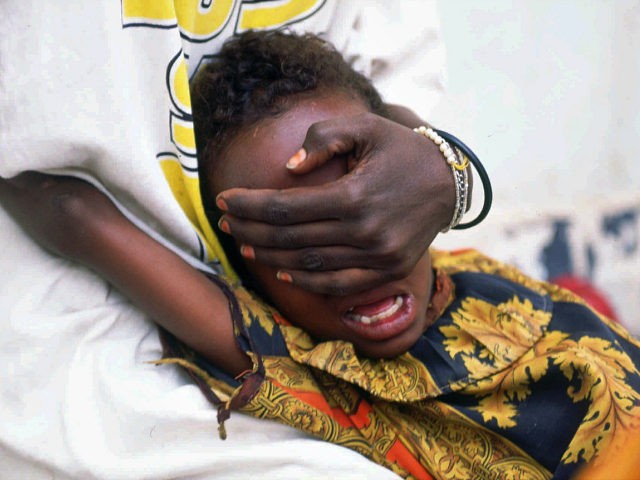The number of young girls in Somalia subject to female genital mutilation (FGM) has soared in recent weeks amid lockdown measures imposed in response to the Chinese coronavirus pandemic, according to a report from the children’s rights organization Plan International on Monday.
Despite lockdown measures being imposed, “circumcisers” – locals who mutilate the girls at their parents’ request – are reportedly working door-to-door to tend to girls stuck at home during the pandemic, leading to a large increase in the number of mutilations taking place.
“We’ve seen a massive increase in recent weeks,” said Sadia Allin, Plan International’s head of mission in Somalia. “We want the government to ensure FGM is included in all Covid [Chinese coronavirus] responses.”
Under normal circumstances, FGM typically takes place during school holidays or in rural areas, as the procedure is technically illegal in Somalia, although very few cases are actually prosecuted.
“The lockdown is being seen as an opportune time for the procedure to be carried out in the home with ample time for healing,” Allin continued. “The economic turndown is also motivating the cutters to resort to harmful livelihood options, and they are knocking door to door to cut girls.”
A strictly Islamic country, Somalia has the highest rate of FGM worldwide, with around 98 percent of women victims of the procedure. According to the World Health Organization (W.H.O.), FGM is defined as “all procedures that involve partial or total removal of the external female genitalia, or other injuries to the female genital organs for non-medical reasons.”
These non-medical reasons typically include supposedly protecting a Muslim girl’s “modesty” by depriving her of sexual pleasure. The practice offers no health benefits and can result in severe pain, hemorrhage, genital tissue swelling, fever, infections, and urinary problems. In the long term, it can also lead to urinary and vaginal problems, as well as an increased risk of childbirth complications.
“One of the cases we have recorded is of two sisters aged 8 and 9 who was cut last week and who are still trying to come to terms with what happened to them,” Allin explained. “Their mother, like many parents, views cutting as an essential part of a girls’ cultural and gender identity, a precondition for marriage and most importantly a religious rite of passage.”
Around 200 million women are victims of the procedure worldwide. According to the United Nations Population Fund, the coronavirus pandemic could drastically increase the number of girls subject to the barbaric procedure, leading to potentially two million more cases over the next decade that otherwise would not have taken place.
“Every girl and woman should have the autonomy and necessary knowledge to be able to make free and informed decisions about her body,” Allin concluded.
“It is crucial to engage families, communities and traditional and religious leaders in changing attitudes and norms around this harmful practice,” she added. “We need to ensure it is no longer perceived to be acceptable, beneficial, or tolerated and is instead condemned as a human rights violation which needs to be eliminated.”
Follow Ben Kew on Facebook, Twitter at @ben_kew, or email him at bkew@breitbart.com

COMMENTS
Please let us know if you're having issues with commenting.